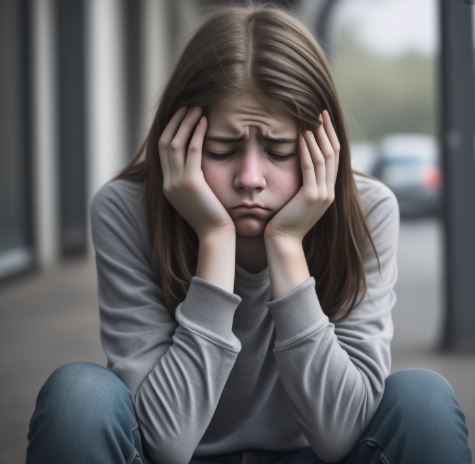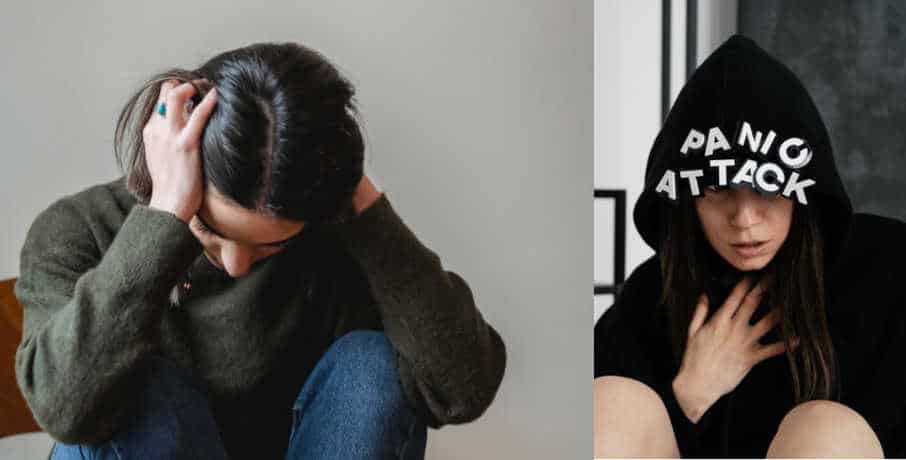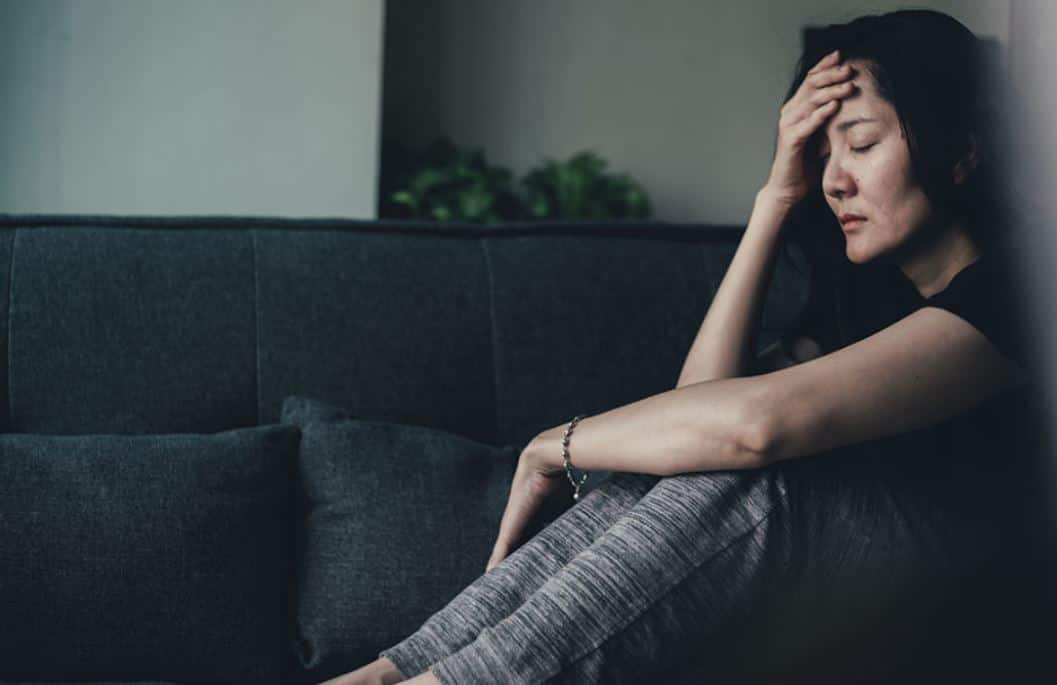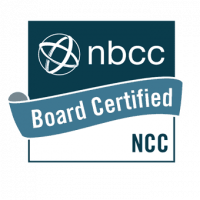
Would you Like A Free Anxiety Consultation
Don’t let anxiety consume you any longer. Take the first step towards a better life and schedule a free consultation today.
What you'll find in this article.
- What is anxiety?
- What are anxiety disorders?
- Is anxiety different from an anxiety disorder?
- What causes anxiety?
- How anxiety disorders develop
- What are the different types of anxiety disorders?
- Do I have an anxiety disorder?
- 10 tips to dealing with anxiety
- Anxiety treatments
- How to find anxiety counselors
- What questions do I ask a therapist?
Frisco, TX Anxiety Counseling & Therapy
Anxiety is one of the most common mental health issues facing Americans. In fact, according to the National Alliance on Mental Illness, 19.1% of American adults–about 40 million–have an anxiety disorder. When anxiety interferes with daily life functions, it may be time to seek a medical professional to discuss whether or not an anxiety disorder may be at play. Despite anxiety disorders being prevalent, only approximately 37% of people experiencing anxiety disorders receive professional counseling treatment and therapy. Many suffering from this don’t realize it’s an entirely treatable condition that can be solved with something as simple as online anxiety counseling from the comfort of their own home. All of our patients at Northstar Counseling & Therapy use or have used online telehealth therapy as a means to help keep their anxiety to a minimum.
What is anxiety?
The American Psychological Association (APA) defines anxiety as “an emotion characterized by feelings of tension, worried thoughts and physical changes like increased blood pressure.” When the brain senses a potentially dangerous situation, it releases hormones that give us that tell-tale panicky feeling: increased heart-rate, sweating, quickened breath. On its own, anxiety is a normal, healthy emotion everyone experiences. We even benefit from it. Anxiety signals to us that we may be at risk and may keep us from making poor decisions or avoid danger. When anxiety is a normal emotion, it comes and goes and does not impact our overall experience of life.
Here are a few examples of what anxiety is:
- Feeling nervous before a big presentation or interview
- Feeling restlessness or uneasy and worried about a future event or situation
- Having a sense of impending doom or danger without a clear reason
- Avoiding certain places or situations due to fear or discomfort
- Experiencing physical symptoms like sweating, shaking, or heart palpitations in response to stress or anxiety-provoking situations.
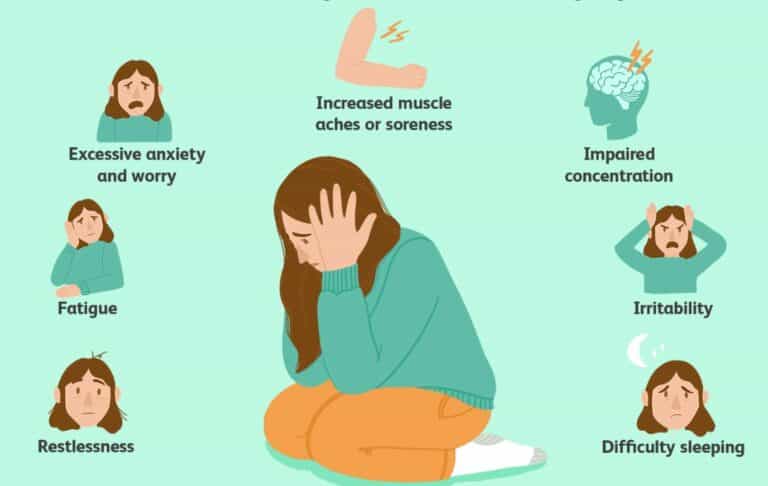
Anxiety Therapist | Frisco, Texas

MS, LPCC, LPC, NCC
Therapist | Licensed Professional Clinical Counselor | Nationally Certified Counselor
With over a decade of experience in assisting individuals coping with anxiety, I excel as a professional anxiety therapy counselor. My objective is to support you in alleviating anxiety and attaining your personal well-being goals. Recognizing that each individual is unique, I customize my approach to suit your specific needs. I guide you in fostering self-trust, resilience, and emotional intelligence, enabling you to effectively manage anxiety. Should you wish to embark on a journey towards a more tranquil and fulfilling life, please do not hesitate to contact me and we can commence our collaboration.
Megan is a fully licensed therapist in both Minnesota and Texas. Discover NorthStar Counseling & Therapy at 2591 Dallas Parkway, Suite 300, Frisco, TX.
What are the different types of anxiety disorders?
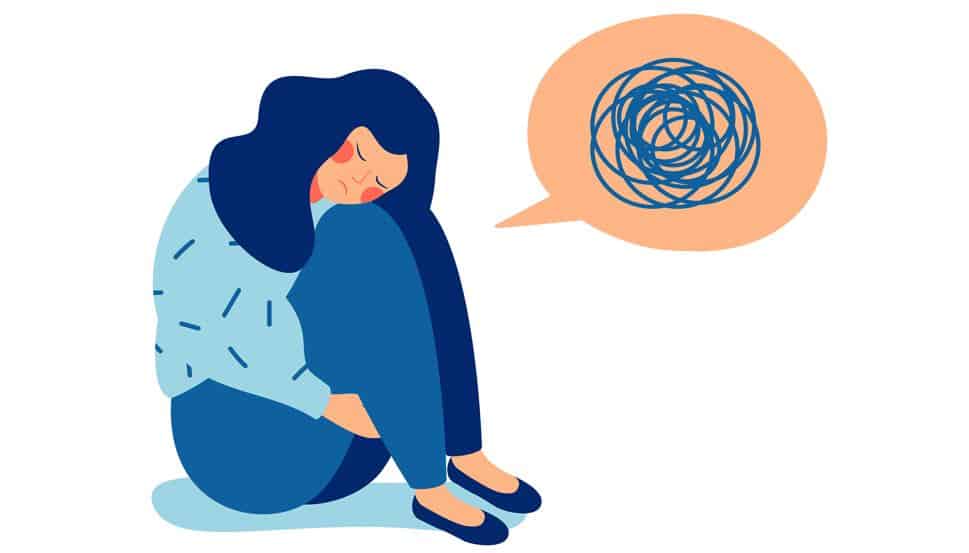
Anxiety disorders are more than just occasional feelings of worry or fear. For some individuals, these feelings of panic and dread can be easily triggered and may persist, leading them to feel debilitated or hopeless. The chronic nature of their anxiety often worsens these feelings over time.
Consider the analogy of wearing a winter coat. Imagine putting on a heavy coat to protect yourself from a cold day. After braving the cold without protection, you may fear never warming up again. In response, you pile on layer after layer, despite the changing seasons. By midsummer, with several layers on in scorching 100-degree heat, your body becomes overwhelmed, and you’re at risk of passing out.
This is much like how an anxiety disorder operates. The constant layering of dread, fear, and worry can become so burdensome that a person might struggle to engage in daily activities or even leave their home. It’s also a reason why anxiety and depression frequently coexist.
Different Types of Anxiety Disorders
To understand the nuances of anxiety disorders, it’s crucial to recognize their different types:
| Type of Anxiety Disorder | Brief Description |
|---|---|
| Generalized Anxiety Disorder (GAD) | Chronic worry about various aspects of daily life. |
| Panic Disorder | Recurrent, unexpected panic attacks and fear of future attacks. |
| Social Anxiety Disorder (Social Phobia) | Intense fear of social situations, leading to avoidance. |
| Specific Phobias | Extreme fear of specific objects or situations, e.g., spiders or flying. |
| Obsessive-Compulsive Disorder (OCD) | Persistent, unwanted thoughts and repetitive behaviors. |
| Post-Traumatic Stress Disorder (PTSD) | Anxiety following a traumatic event. |
Gender and Anxiety
The American Psychiatric Association has observed that women are more likely than men to be diagnosed with an anxiety disorder. While the reasons for this discrepancy are multifaceted, understanding this trend can provide a deeper insight into anxiety’s prevalence and impact.
What are the symptoms of anxiety?
Experiencing anxiety is a natural part of life. However, when the symptoms become chronic, persistent, and interfere with one’s daily life, it might indicate an anxiety disorder that will require anxiety counseling. Remember, the severity and manifestation of these symptoms can vary among individuals based on their specific type of anxiety disorder.
If you consistently relate to the following symptoms, it might be the effects of an untreated anxiety disorder:
| Symptom | Description |
|---|---|
| Excessive worry or fear | Constant concern about everyday situations or upcoming events |
| Restlessness or feeling on edge | Inability to relax or sit still |
| Fatigue or trouble sleeping | Feeling perpetually tired or struggling to get quality sleep |
| Difficulty concentrating or racing thoughts | Finding it hard to focus or being overwhelmed by rapid thoughts |
| Physical symptoms | Including sweating, trembling, or experiencing a rapid heartbeat |
| Avoidance behavior | Deliberately avoiding scenarios that cause anxiety |
| Obsessive or compulsive behaviors | Repetitive actions or thoughts driven by anxiety |
| Panic attacks | Intense episodes of fear marked by symptoms like shortness of breath, chest pain, and dizziness |
If these symptoms resonate with your experiences and disrupt your everyday activities, seeking professional help from a highly qualified anxiety therapist near you can offer relief and guidance.
10 easy tips to dealing with anxiety
While anxiety is a natural emotion, persistent or heightened feelings can interfere with daily life. Here are ten effective strategies to cope with anxiety:
| Tip | How to Implement |
|---|---|
| 1. Deep Breathing Exercises | Engage in diaphragmatic breathing. Inhale deeply through the nose, expanding the abdomen, hold briefly, and exhale slowly through the mouth. Repeat until calm. |
| 2. Regular Exercise | Aim for at least 30 minutes of moderate activity most days. This can include walking, cycling, or swimming to release mood-boosting endorphins. |
| 3. Limit Caffeine and Stimulants | Opt for decaf beverages and avoid energy drinks. Note that some medications might contain stimulants, so use them cautiously. |
| 4. Practice Mindfulness | Engage in meditation or yoga. When your mind drifts, gently refocus on your breath or the present moment. |
| 5. Challenge Negative Thoughts | Replace negative self-talk with realistic and positive affirmations. Instead of “I can’t do this,” think “I’ll do the best I can.” |
| 6. Connect with Others | Socialize with friends or loved ones, even if briefly. A quick chat or message can offer invaluable support. |
| 7. Prioritize Sleep | Aim for 7-8 hours nightly. Establish a routine, limit evening screen time, and avoid caffeine and alcohol before bedtime. |
| 8. Avoid Alcohol and Drugs | These can exacerbate anxiety symptoms and interfere with treatment outcomes. |
| 9. Limit Stress | If possible, try to reduce sources of significant stress, and explore stress-reducing techniques that work for you. |
| 10. Seek Professional Help | If symptoms persist or intensify, consult with a mental health professional who can guide you through therapeutic interventions or recommend further treatment. |
Remember: Should you ever feel that your anxiety puts you or others in immediate danger, please contact emergency services right away.
Breaking it down this way makes it easier to digest and offers a clearer roadmap for individuals dealing with anxiety.
Is there a difference of anxiety vs an anxiety disorder?
Anxiety, in many circumstances, is a natural and protective reaction of our body to potentially harmful situations. When used appropriately, it acts as a safeguard, alerting us to threats and helping us navigate the world safely.
Consider the scenario where you’re blindfolded and asked to cross a bustling street. In this situation, anxiety serves as a vital protective measure. The distressing sensations and fear stemming from anxiety would most likely deter you from taking such a risky step. This anxiety, borne out of a real threat, is a clear testament to how our body’s innate reactions prioritize our safety.
However, problems arise when these anxiety responses trigger without any apparent threat. Imagine feeling the same level of distress merely from hearing the sound of traffic, even when safely indoors. This disproportionate reaction suggests the presence of an anxiety disorder. Such heightened and misplaced anxiety responses can indicate that one’s internal alarm system is signaling danger even in safe situations.
The Impact of Unchecked Anxiety Disorders
While anxiety has its place in keeping us safe, an anxiety disorder can be debilitating. Persistent and unneeded anxiety reactions not only disrupt daily activities but also significantly deteriorate one’s quality of life. For many, seeking professional assistance, like anxiety counseling, becomes essential to regain control and find relief.
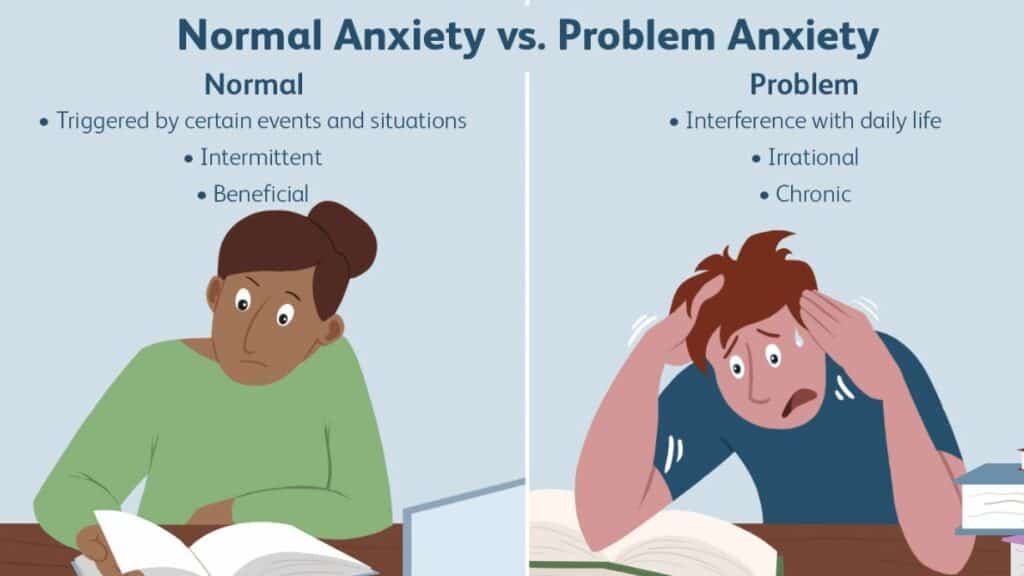
Anxiety disorders, though complex, can often be traced back to a mix of genetic, environmental, and neurological factors. Delving deeper into these sources helps in understanding the multifaceted nature of anxiety.
Genetic Factors:
Some individuals may be genetically predisposed to anxiety disorders. Specific genetic variations can heighten the risk of developing these disorders. For instance, if parents or immediate family members suffer from anxiety or other mental health challenges, their offspring might inherit a higher likelihood of facing similar issues.
Environmental Triggers:
Life experiences, especially during formative years, have a profound impact on our mental well-being. Experiencing traumatic events, like car accidents or physical assaults, can precipitate conditions such as post-traumatic stress disorder (PTSD). Moreover, growing up in environments where caregivers suffer from mental health disorders can set the stage for future anxiety issues.
Neurological Causes:
The brain, with its intricate web of chemicals and pathways, plays a central role in mood regulation. Neurotransmitters, like serotonin and dopamine, are vital for maintaining emotional balance. Imbalances or irregular processing of these chemicals can be linked to anxiety disorders. For instance, a deficiency in serotonin often correlates with heightened anxiety symptoms.
Medical Conditions:
Certain physical health challenges, like thyroid disorders, heart diseases, and chronic pain, can manifest or exacerbate anxiety symptoms. The body-mind connection in these instances shows how physical ailments can have a psychological ripple effect.
Substance-Related Triggers:
Substance abuse, be it through drugs or alcohol, can both induce and amplify anxiety disorders. Additionally, withdrawal from these substances might trigger or aggravate anxiety symptoms.
In summary, anxiety disorders do not have a one-size-fits-all cause. They stem from a combination of interconnected genetic, environmental, and neurological factors, each adding layers of complexity to the individual’s experience.
Why anxiety counseling is an effective treatment
Dealing with anxiety is unique to each individual, but one treatment has been consistently effective for many: anxiety counseling. Here’s why:
Comprehensive Treatment Approaches: Anxiety counseling often merges various strategies, from psychotherapy and behavioral therapy to, in more severe cases, medication. This multi-pronged approach ensures that the root causes, as well as the symptoms, are addressed.
Root Cause Identification: One of the primary goals of anxiety counseling is to discern the origin of one’s anxiety. Understanding the trigger points is a pivotal step towards effective management.
Personalized Techniques: Since everyone’s experience with anxiety is different, counseling provides tailor-made strategies. Your therapist will help you navigate and adopt methods that resonate and work best for you.
Skill Integration: Counseling isn’t just about understanding; it’s about practicing. With your therapist’s guidance, you’ll learn to seamlessly integrate these anxiety management techniques into your daily life.
Self-Discovery: Beyond merely addressing the symptoms, anxiety counseling is a journey of self-discovery. It’s an opportunity to understand oneself better and find individualized paths to mental well-being.
In essence, anxiety counseling offers a personalized and holistic approach to not just manage, but to understand and overcome the challenges posed by anxiety.
Is there an anxiety therapist near me?
When faced with the daunting task of searching “anxiety therapist near me”, trust that Northstar Counseling & Therapy in Frisco, TX stands as a beacon of hope and healing. Our commitment is to guide you through the challenges of anxiety with tailored, compassionate care.
Why Choose Northstar Counseling & Therapy in Frisco?
Individualized Approach: Everyone’s experience with anxiety is unique. We understand this, catering our treatments to individuals, couples, and families. With us, therapy isn’t one-size-fits-all; it’s designed around you.
Expert Team: Our therapists, licensed in Texas and Minnesota, are adept in the intricacies of anxiety management. Their expertise ensures that you’re not just heard, but truly understood and supported.
Holistic Care: Beyond managing symptoms, our goal is to enhance your overall well-being. We delve deep, helping you navigate, understand, and overcome the many facets of anxiety.
Convenient Sessions: Whether you prefer face-to-face sessions or the comfort of online consultations, we have the flexibility to accommodate your needs.
Anxiety can cast a long shadow over one’s life, but with the right guidance, it’s possible to step into the light. Trust in the expertise and compassionate care of Northstar Counseling & Therapy. In Frisco, TX, we’re more than just therapists; we’re your partners in the journey to mental clarity and peace.
Visit our website, NorthstarFrisco.com, to discover more about our specialized services and to begin your path to a brighter, anxiety-free tomorrow.
Qualifying an Anxiety Therapist : Questions to ask
Embarking on a therapeutic journey requires finding the right professional for your needs. To aid in your search for an anxiety therapist, we’ve compiled a list of crucial questions to help you identify the right fit:
1. Experience and Expertise:
- How long have you been treating anxiety disorders?
- Do you have specialized training in treating anxiety disorders?
2. Treatment Modalities:
- What types of treatments do you offer specifically for anxiety disorders?
- Do you provide Cognitive-Behavioral Therapy (CBT) or Exposure Therapy?
- How do you customize treatments for each individual’s unique needs?
3. Credentials:
- Can you share your training and credentials?
4. Treatment Logistics:
- How often are the therapy sessions, and what’s the expected treatment duration?
- How do you involve clients in creating their treatment plan?
5. Client-Centered Approach:
- Can you describe your approach to client-centered care?
6. Scheduling and Availability:
- Are you available for sessions outside regular hours? Any flexibility in scheduling?
7. Emergency Protocols:
- How do you respond to emergencies, like a client having a panic attack during a session?
8. Confidentiality and Privacy:
- What measures do you take to ensure client confidentiality and privacy?
9. Financial Considerations:
- Can you detail your fee structure?
- Do you offer sliding scale fees or other accommodations for clients with financial constraints?
The right therapist not only meets your logistical and financial needs but also connects with you on a personal level. This rapport can be vital for therapeutic success. Trust your instincts, and remember that a strong therapist-client connection can significantly accelerate the healing process.
Free Consultation With A NorthStar Anxiety Counseling Therapist in Frisco, TX

Anxiety disorders are 100% treatable, but without some sort of professional treatment they tend to get more severe over time. There is no need to harm yourself further by living with an anxiety disorder. Schedule a free and secure individual consultation with us today.
With the proper counseling you will live a much happier life.

Owner, Clinician, Wife & Mom
Helpful Resources
Books on Understanding and Managing Anxiety:
“The Anxiety and Phobia Workbook” by Edmund Bourne PhD.
- A comprehensive guide that offers strategies to cope with anxiety and phobias.
“Dare: The New Way to End Anxiety and Stop Panic Attacks” by Barry McDonagh.
- A fresh approach to understanding anxiety, with practical tools to combat panic attacks.
“The Cognitive Behavioral Workbook for Anxiety: A Step-By-Step Program” by William J. Knaus EdD and Jon Carlson PsyD EdD ABPP.
- Offers evidence-based techniques grounded in CBT to reduce anxiety and its associated symptoms.
“Anxious Kids, Anxious Parents: 7 Ways to Stop the Worry Cycle and Raise Courageous & Independent Children” by Reid Wilson PhD and Lynn Lyons LICSW.
- Focuses on breaking the cycle of anxiety in families, especially between parents and children.
“My Age of Anxiety: Fear, Hope, Dread, and the Search for Peace of Mind” by Scott Stossel.
- A personal narrative combined with extensive research, offering insights into the history, science, and experience of anxiety.
General Sources for Information:
Professional Journals: Periodicals such as The Journal of Anxiety Disorders or The Journal of Clinical Psychology often have the latest research and findings on anxiety and its treatment.
University Psychology Departments: Universities like Harvard, Stanford, or UCLA frequently publish their research and findings online, providing valuable information on the topic.
National Organizations: Groups such as the Anxiety and Depression Association of America (ADAA) or the National Institute of Mental Health (NIMH) offer a plethora of resources and up-to-date information.
Local Libraries: Many libraries have sections dedicated to mental health where you can find books, research papers, and other materials about anxiety.
Remember, while these resources are helpful, it’s essential to consult with professionals when seeking a deeper understanding or help with personal experiences related to anxiety.


